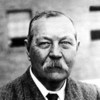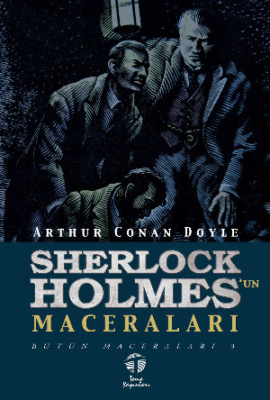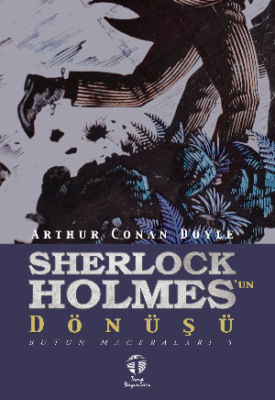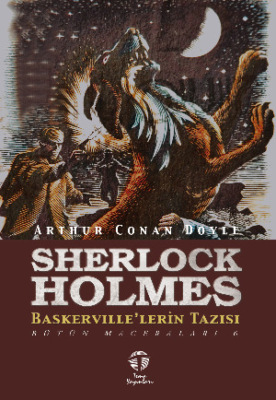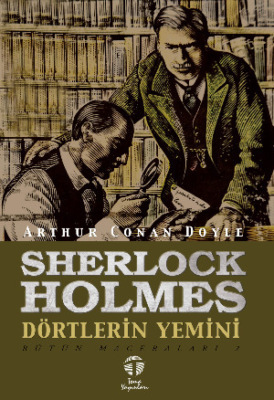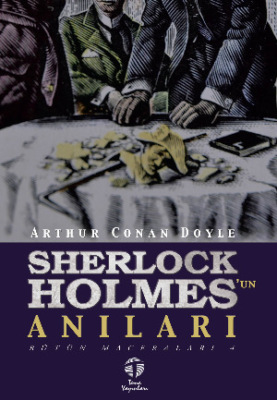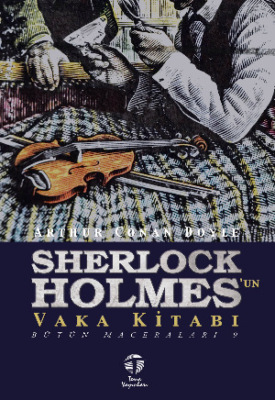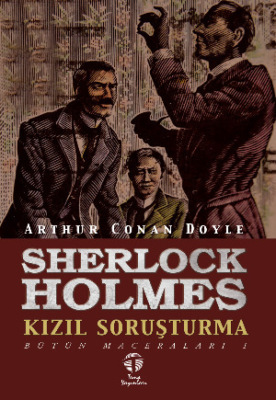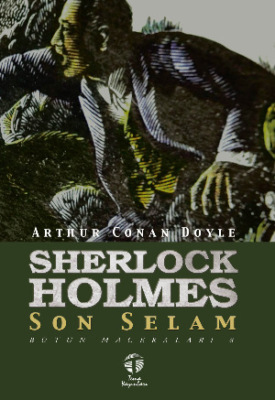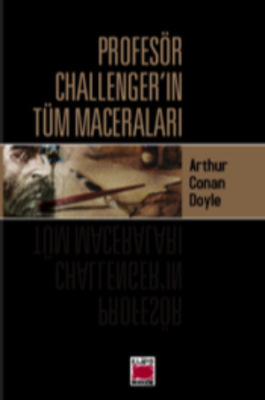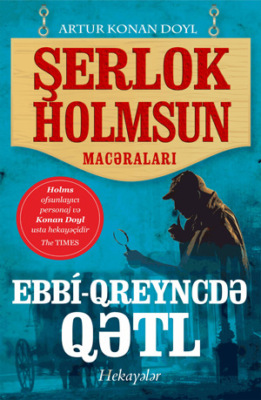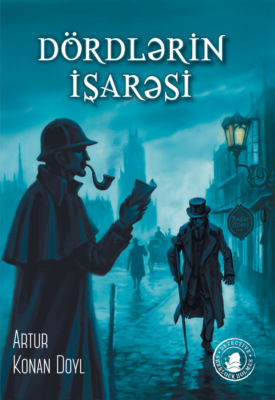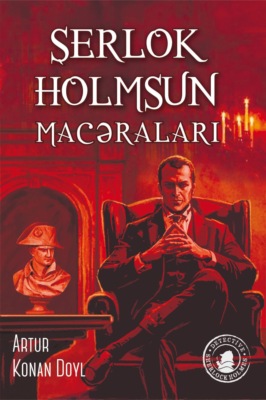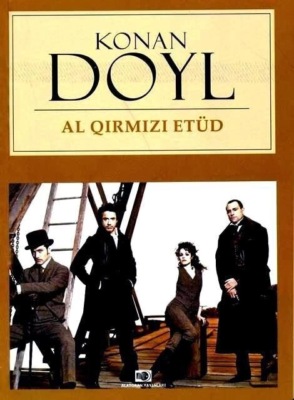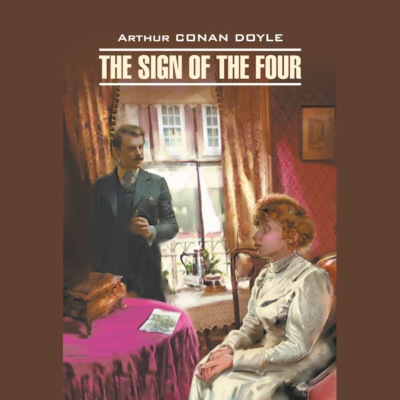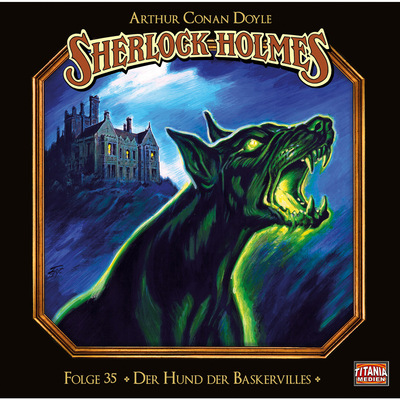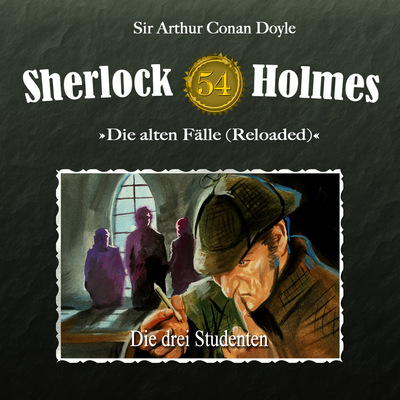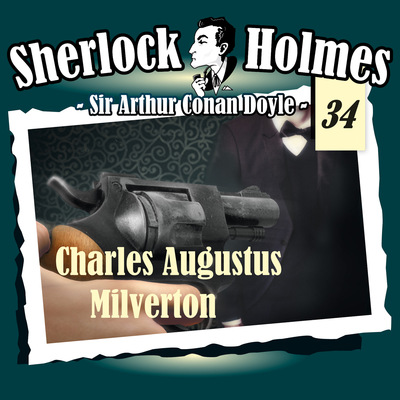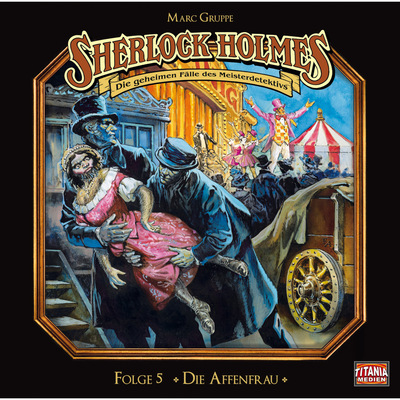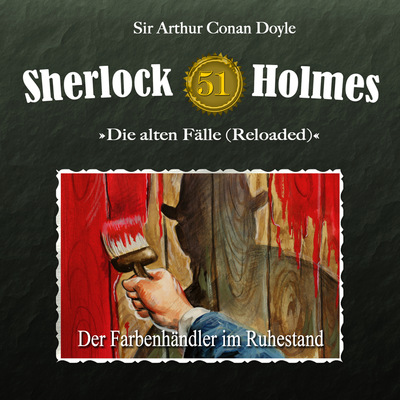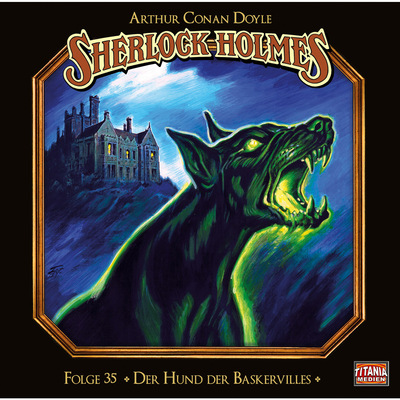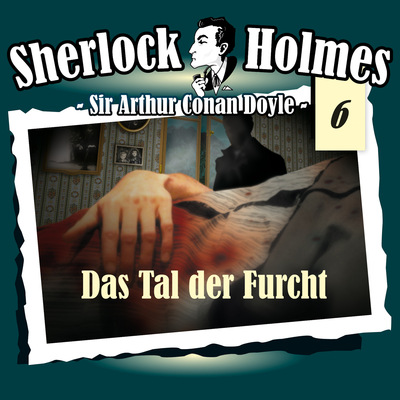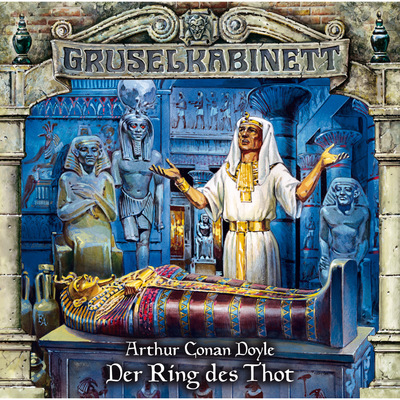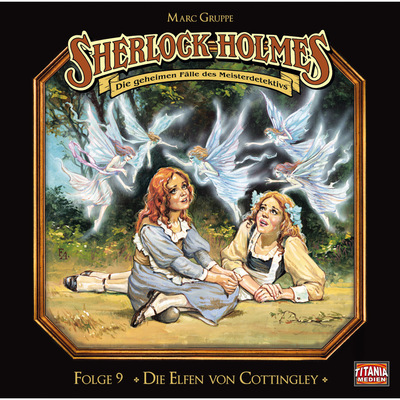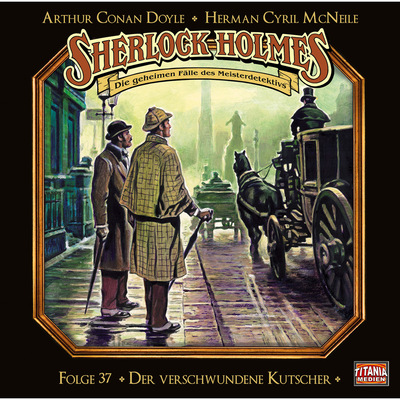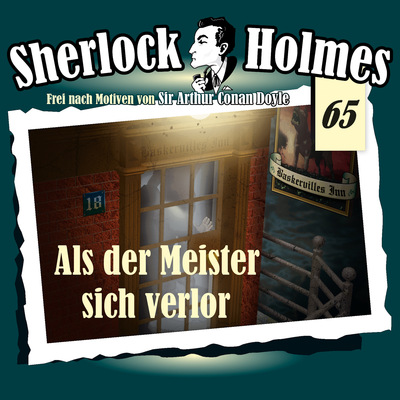Arthur Ignatius Conan Doyle (22 Mayıs 1859, Edinburgh - 7 Temmuz 1930, Sussex), İskoçyalı yazar. Özellikle, yarattığı roman kahramanı Dedektif Sherlock Holmes'ün maceraları olarak yayınladığı suç hikâyeleriyle bu türde bir çığır açmıştır. Dedektif romanları dışında bilimkurgu, tarih, oyun, şiir kitapları ve kurgu dışı düz yazıları vardır.
Arthur Conan Doyle 22 Mayıs 1859'da, Edinburgh, İskoçya'da doğmuştur. Babası bir İngiliz olan Charles Altamont Doyle, annesi ise İrlandalı Mary Foley'di. Soyadı "Conan Doyle" ise de, bu bileşik soyadının kökeni bilinmemektedir. Kaynaklardan biri, Arthur ve ablası Annette'in bileşik soyadlarını büyük amcaları olan usta gazeteci Michael Conan'dan aldığını yazmaktadır. Aynı kaynak 1885 yılında, evinin dışarısındaki pirinç levhada ve doktora tezindeki imzada adının "A. Conan Doyle" olarak geçtiğini belirtmektedir. Fakat 1901 Nüfus Kaydı gibi diğer kaynaklar Conan Doyle'un soyadının "Doyle" olduğunu, ve ancak yıllar sonra "Conan Doyle" olarak kullandığını yazmaktadır. Conan Doyle'un babası da kardeşleri (içlerinden bir tanesi illüstratör Richard Doyle'du) ve babası gibi bir ressamdı. Conan Doyle, dokuz yaşındayken St Mary's Hall Katolik Cizvit Stonyhurst hazırlık okuluna gönderildi. Daha sonra Stonyhurst Koleji'nde öğrenimine devam etti, fakat Hristiyanlığı reddederek 1875 yılında bir agnostik olacaktı.
1876'dan 1881'e kadar Edinburgh Üniversitesi'nde tıp öğrenimi gördü, bu eğitimin bir kısmında şimdi Birmingham'ın bir parçası olan Aston şehrinde çalıştı. Öğrenimine devam etmekteyken kısa hikâyeler yazmaya başladı; 20 yaşından önce Chambers's Edinburgh Journal isimli dergide ilk hikâyesi yayımlandı. Üniversitedeki yıllarının ardından Batı Afrika sahillerine gemi hekimi olarak yolculuk etti, arkasından 1882 yılında Plymouth kentinde kendi muayenehanesini açtı. Doktorasını 1885 yılında "Tabes Dorsalis" üzerine yaptı.
1882'de Portsmouth'ta hekimliğe başladı. Mesleğinde ilk başlarda çok başarılı sayılmazdı; odasında hasta beklerken tekrar hikâyeler yazmaya başladı. İlk önemli eseri, 1887 yılında "Beeton's Christmas Annual"da basılmış olan "Kızıl Dosya" isimli hikâyeydi. Bu hikâye Sherlock Holmes'un ilk kez göründüğü hikâye olma özelliğini taşımaktadır ve karakter kısmen üniversitedeki profesörlerinden bir tanesi olan Joseph Bell'e benzemektedir. Sherlock Holmes'un göründüğü diğer hikâyeler Strand isimli dergide basılacaktı. Garip bir şekilde, İngiliz yazar Rudyard Kipling de başarılarından ötürü Conan Doyle'u kutladı ve "Acaba bu karakter arkadaşım Joe olabilir mi?" diye sordu. Joseph Bell'e olan benzerlik gözünden kaçmamıştı. Fakat Sherlock Holmes için, Bell'den çok, Edgar Allan Poe'nun karakteri C. Auguste Dupin'i model almıştı. Southsea şehrinde ikamet etmekteyken Portsmouth Futbol Kulübü adlı amatör bir futbol takımı için top koşturdu.
1885 yılında Louisa (veya Louise) Hawkins ile evlendi. "Touie" diye hitap ettiği Louisa vereme yakalandı ve 4 Temmuz 1906'da öldü. 1907'de, 1897 yılında tanışıp âşık olduğu fakat eşine olan sadakatinden dolayı hislerini açılamadığı Jean Leckie ile evlendi. Conan Doyle'un ikisi ilk eşinden, üçü ikinci eşinden toplam beş çocuğu oldu.
1890 yılında Conan Doyle Viyana'da göz üzerine araştırmalar yaptı; 1891'de optalmolog olarak Londra'da bir muayenehane açtı. Otobiyografisinde tek bir hastanın bile kapısına gelmediğini yazacaktı. Bu onun yazarlığa daha fazla zaman ayırmasına fırsat verdi; Kasım 1891'de annesine, "Holmes'u öldürmeyi düşünüyorum... Hikâye bitsin gitsin istiyorum. Aklımı daha iyi şeylerden çeliyor anne." diye yazacaktı. Annesi şöyle yazdı: "Sana nasıl uyuyorsa öyle yap, ama insanlar bunu pek hoş karşılamayacaktır." 1893'te, daha "önemli" eserlere (örneğin tarihi romanlarını yazmak için) öncelik vermek için böyle yaptı.
The Final Problem isimli hikâyede Holmes ve ezeli düşmanı Profesör Moriarty bir şelaleden birlikte düşerek ölüyorlardı. Karakterin ölmesine isyan eden okurları dinleyerek Sherlock'u tekrar hayata döndürdü; Holmes, The Adventure of the Empty House isimli hikâyede geri dönüyordu, verilen açıklama ise sadece Moriarty'nin düştüğü, ama Holmes'un diğer tehlikeli düşmanları da olduğundan kendisini de ölmüş gibi gösterdiğiydi. Holmes toplamda 56 kısa hikâye ve 4 Conan Doyle romanında yer almaktadır (bu süreden sonra pek çok kez diğer yazarların hikâye ve kitaplarında da gözükmüştür). Güney Afrika'daki İkinci Boer Savaşı'nı takiben 20. yüzyılın başlarında, Birleşik Krallık'ın bölgede olan idaresine olan eleştirilere cevaben Conan Doyle, Krallık'ın Boer Savaşı'ndaki rolünü haklı çıkartan kısa bir kitapçık yazdı ve yayınladı. "The War in South Africa: Its Cause and Conduct (Güney Afrika'daki Savaş: Nedeni ve İdaresi)" isimli bu kitapçık pek çok dile çevrilecekti.
Conan Doyle, 1902 yılında şövalye ve Surrey'nin "Deputy Lieutenant" ilan edilmesinin nedeninin bu kitapçık olduğunu düşünmekteydi. 1900 yılında daha uzun bir kitap olan "Büyük Boer Savaşı" isimli kitabı da yazmıştı. 20. yüzyılın başlarında Sir Arthur Parlamento'ya iki kez aday oldu, dikkate değer oylar almış olsa da ikisinde de seçilemedi.
Conan Doyle, başını gazeteci E. D. More ve diplomat Roger Casement'ın çektiği Kongo'nun Özgürleştirilmesi Kampanyası'na destek veriyordu. 1909 yılında Kongo'daki dehşeti yerden yere vurduğu "Kongo'daki Suç" adlı uzun bir kitapçık yazdı. Morel ve Casement ile arkadaş oldu, 1912 yılındaki "Kayıp Dünya" isimli kitabındaki baş karakterlerden ikisi için onlardan ilham alacaktı.
İkisiyle de arkadaşlık bağları daha sonra koptu: Sol görüşleri olan Morel I. Dünya Savaşı sırasında pasifist hareketin liderlerinden biriydi; Casement ise İrlanda milliyetçiliğinden dolayı hapishanedeyken İngiltere'ye ihanet etmişti. Conan Doyle, Casement'ın delirmiş olduğunu söyleyerek onu ölüm cezasından kurtarmaya çalıştı, fakat başarısız oldu.
Conan Doyle adaletin yılmaz bir savunucusuydu, iki davayı şahsen inceledi ve araştırdı. Sayesinde bu iki davada mahkûm edilmiş iki kişi salındı. İlk davanın sanığı 1906'da iddiaya göre tehdit dolu mektuplar yazan ve hayvanlara işkence yaptığı söylenen yarı İngiliz, yarı Hint George Edalji isimli bir avukattı. Polis Edalji'yi hapse tıktı, halbuki hayvanların gördüğü işkence şüphelinin hapse girmesinden sonra da devam etmişti.
Temyiz Mahkemesi'nde bu davadan çıkan karar 1907'de yürürlüğe girdiğinde Conan Doyle sadece George Edalji'ye yardım etmiş olmuyordu, çalışmaları adaletin başarısız olduğu diğer noktaları düzeltmekte de büyük rol oynadı. Julian Barnes'ın 2005'te yazdığı roman "Arthur & George"da Conan Doyle ve Edalji'nin hikâyesi kurgusal olarak anlatılmaktadır.
İkinci davanın sanığı 1908'de Glasgow'da 82 yaşında bir kadını sopayla dövmekten içeride olan Alman Yahudi kumarhane işletmecisi Oscar Slater'dı. İddia makamının öne sürdüğü savdaki tutarsızlık ve birinin onu ispiyonlamış olduğu hissi Conan Doyle'da merak uyandırmıştı.
1906'da karısı Louisa'nın, ve oğlu Kingsley, kardeşi, iki kayınbiraderi ve iki yeğeninin I. Dünya Savaşı'nda ölümünden sonra Conan Doyle bunalıma girdi. Ruhaniyet ve bu düşüncenin sağladığı ölümden sonra yaşamın güya bilimsel kanıtına destek vererek biraz huzur buluyordu.
Kingsley Doyle, 1916'daki feci Somme Çarpışması sonrasında yara aldıktan sonra iyileşmekte olduğu sene, Ekim 1917'de zatürreden öldü. Baba Doyle Ruhaniyet ile öyle ilgilenmişti ki karakteri Profesör Challenger'ın bir romanı olan "Sis Diyarı" tamamen bu konu hakkındaydı. Bu dönemdeki hayatının garip örneklerinden bir tanesi de "Perilerin Gelişi" (1921) isimli kitaptı. Cottingley perileri fotoğraflarının gerçekliğine öylesine inanmıştı ki, bunlara ve ayrıca perilerin ve ruhların doğaları ve varlığı konusunda sunduğu teorilere kitabında yer verecekti.
Bu konuda yazmış olduğu yazılar kısa hikâye antolojilerinden biri olan Sherlock Holmes'un Maceraları'nın 1929'da Sovyetler Birliği'nde yasaklanmış olmasının nedenlerinden biriydi. Bu yasak daha sonra kalkacaktı. Rus aktör Vasili Livanov, Sherlock Holmes'u başarılı bir şekilde canlandırmasından dolayı İngiliz İmparatorluğu Nişanı'na layık görülecekti.
Conan Doyle bir süre Amerikalı sihirbaz Harry Houdini ile arkadaş oldu; 1920'de annesinin ölümünden sonra Houdini de Ruhani hareketin öncü aleyhtarlarından biri olmuştu. Houdini, Ruhani medyumların numara yaptığında ısrarcı olmasına rağmen, Conan Doyle Houdini'nin kendisinin de doğaüstü güçlere sahip olduğunu düşünmekteydi; bu görüşünü "The Edge of the Unknown" isimli kitabında yazacaktı. Houdini, yaptıklarının alt tarafı sihirbazlık numarası olduğuna Conan Doyle'u ikna edemedi. Bu da iki arkadaş arasında herkesin bildiği buruk bir uzaklaşmaya neden oldu. Doyle, Houdini başparmağını çıkarıp tekrar yerine koyduğunda şaşkınlığına engel olamamıştı.
Amerikalı bir bilim tarihçisi olan Richard Milner, Conan Doyle'un 1912'de ortalığı kasıp kavuran Piltdown Adamı aldatmacasını başlatan kişi olabileceğini iddia etti. Bu sahte hominid fosili bilim dünyasını 40 yıl boyunca kandırmıştı. Milner, Conan Doyle'un en sevdiği medyumlardan birinin adının lekelenmesinden ötürü intikam arayışında olduğunu ve yazarın bu aldatmacadaki rolünün "Kayıp Dünya" eserinde fark edilebileceğini söylemekteydi.
Samuel Rosenberg, 1974 tarihli kitabı "Naked is the Best Disguise (Çıplaklık En İyi Kamuflajdır)"da Conan Doyle'un yazıları sayesinde akıl sağlığının bastırılmış ve gizli yönlerine nasıl açık ipuçları bıraktığını yazmaktadır.
7 Temmuz 1930'da Conan Doyle aile bahçesinde elini göğsüne bastırmış bir şekilde bulundu. Hemen sonra kalp krizinden öldü, ve New Forest, Hampshire, İngiltere'de Minstead'deki kilise bahçesine gömüldü. Son sözlerini karısına söylemişti: "Sen harikasın". Mezar taşında şu sözler yazar:
[b]STEEL TRUE (YAMAN ÇELİK)
BLADE STRAIGHT (KESKİN BIÇAK)
ARTHUR CONAN DOYLE
ŞÖVALYE, VATANSEVER, DOKTOR VE EDEBİYATÇI [/b]
Londra'nın güneyinde Hindhead'de Conan Doyle'un inşa ettiği ev Undershaw'da hayat en az bir on yıl kadar daha devam etti; arkasından 1924'ten 2004'e kadar otel ve restoran olarak işletildi. Daha sonra bir müteahhit tarafından satın alındı; çevreciler ve Conan Doyle hayranları buranın korunması için savaşmaktadır. Ev şu an boş. Doğu Sussex'te, Crowborough'daki Crowborough Cross'ta Sir Arthur Conan Doyle'un onuruna bir heykel dikildi. Sir Arthur burada 23 sene yaşamıştı. Edinburgh, İskoçya'da, Conan Doyle'un doğduğu eve yakın Picardy Sarayı'nda Sherlock Holmes'un da bir heykeli bulunmaktadır.
 68,5Кabone
68,5Кabone
